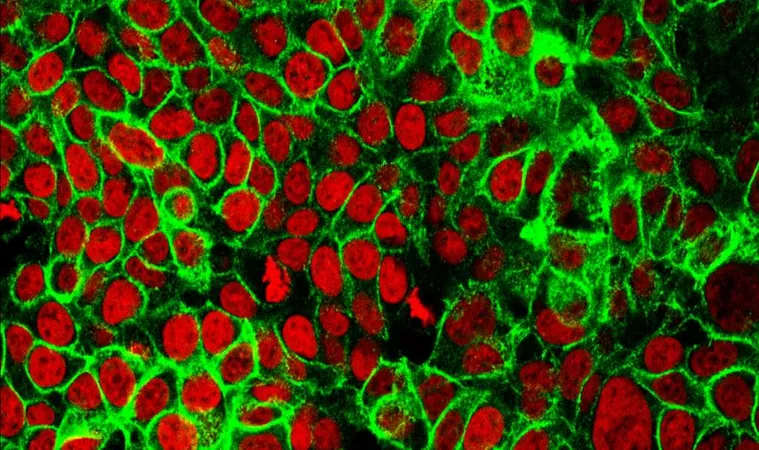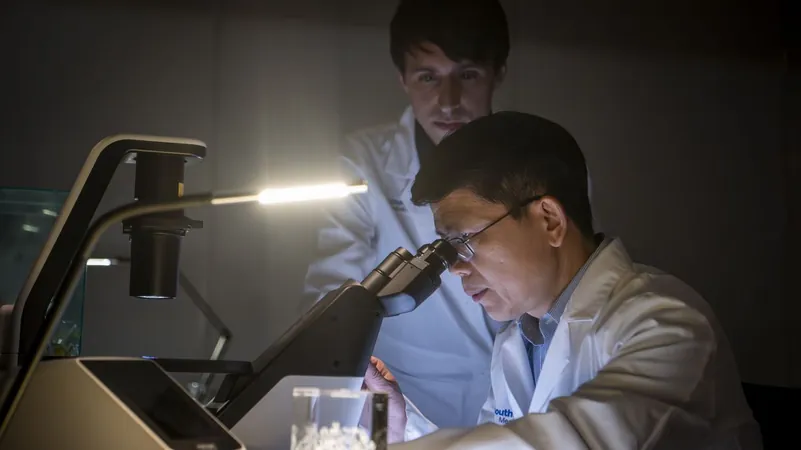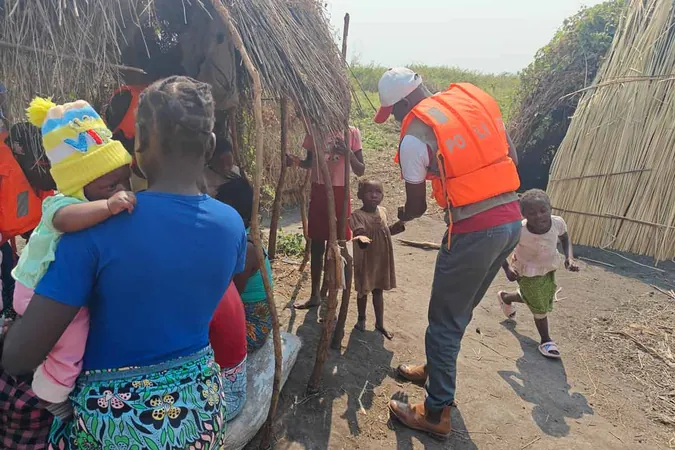
CAR T-Cell Therapy: A Game Changer in the Battle Against Aggressive Blood Cancers
2024-09-30
What is CAR T-Cell Therapy?
CAR T-cell therapy is a groundbreaking approach that harnesses the power of the body's immune system to fight cancer. In this personalized treatment, a patient’s T-cells—crucial components of the immune system—are extracted and genetically engineered in a lab to recognize and destroy cancer cells. Unlike conventional treatments that often employ a one-size-fits-all strategy, CAR T-cell therapy exemplifies precision medicine, tailoring treatments to the unique challenges each patient faces.
Striking Early for Better Outcomes
Recent studies highlight the importance of timing in administering CAR T-cell therapy. When used as a second-line treatment rather than waiting for third-line options, patients have shown dramatically improved responses. Professor Mickey Koh, a leader in oncology at St George’s University Hospital, states, “Therapies that enhance overall survival in the second-line setting, such as axicabtagene ciloleucel (axi-cel), can significantly alter outcomes for patients who might otherwise become too frail for further treatment.”
Diversity in Treatment Options
Currently, three CAR T-cell therapies—axi-cel, tisagenlecleucel (tisa-cel), and lisocabtagene maraleucel (liso-cel)—have gained approval across various countries for treating adult DLBCL patients. It's important to note that while these therapies have shown promising results, not all CAR T-cell treatments are equal. Their efficacy and safety profiles vary based on factors like patient condition and the specific type of lymphoma involved.
Having multiple CAR T-cell options provides invaluable flexibility in patient care. This ensures that healthcare providers can choose the most suitable treatment based on individual response rates, potential side effects, and the immediacy of treatment—a crucial consideration for many patients.
Access: The Final Frontier
Despite the transformative promise of CAR T-cell therapy, accessibility remains a critical issue. The intricate manufacturing processes involved in developing these therapies, alongside their often exorbitant costs and limited availability of specialized treatment centers, means that many eligible patients struggle to access these groundbreaking treatments. For those in regions with underdeveloped healthcare infrastructures, the challenge grows even more daunting, often requiring journeys to distant facilities.
Recent data indicates that CAR T-cell therapies deliver superior response rates and survival outcomes, particularly for patients in the later stages of treatment pathways. Professor Koh emphasizes the potential of CAR T-cell therapy to significantly alter patient outcomes compared to standard care.
As we move forward, it’s clear that CAR T-cell therapy is not just a fleeting trend; it embodies a shift towards more personalized, effective cancer treatments, heralding a new era in oncology where hope flourishes where once there seemed none. While access remains a hurdle, the medical community's commitment to overcoming these challenges is paramount in ensuring that all patients can benefit from this remarkable advance in cancer treatment.
Stay tuned for more updates as the fight against cancer continues to evolve, bringing with it new hope and groundbreaking solutions.




 Brasil (PT)
Brasil (PT)
 Canada (EN)
Canada (EN)
 Chile (ES)
Chile (ES)
 España (ES)
España (ES)
 France (FR)
France (FR)
 Hong Kong (EN)
Hong Kong (EN)
 Italia (IT)
Italia (IT)
 日本 (JA)
日本 (JA)
 Magyarország (HU)
Magyarország (HU)
 Norge (NO)
Norge (NO)
 Polska (PL)
Polska (PL)
 Schweiz (DE)
Schweiz (DE)
 Singapore (EN)
Singapore (EN)
 Sverige (SV)
Sverige (SV)
 Suomi (FI)
Suomi (FI)
 Türkiye (TR)
Türkiye (TR)